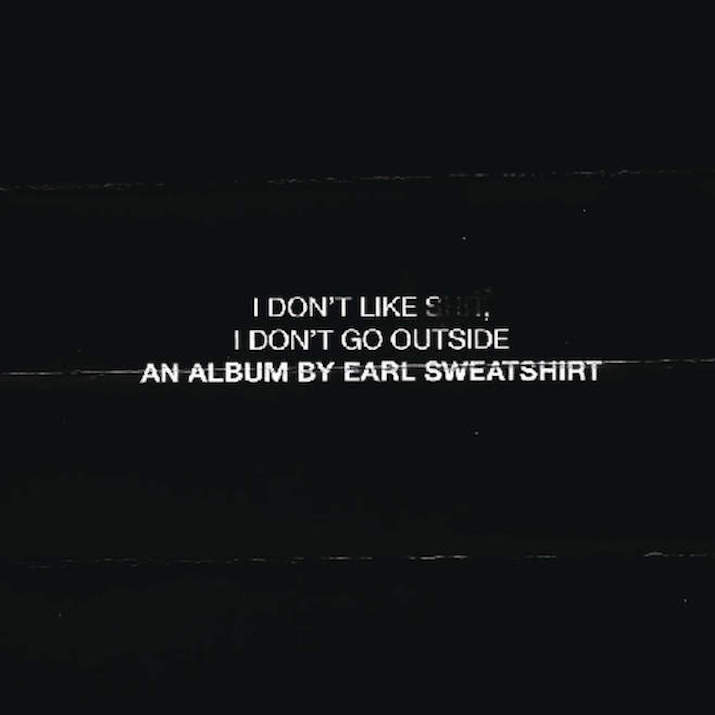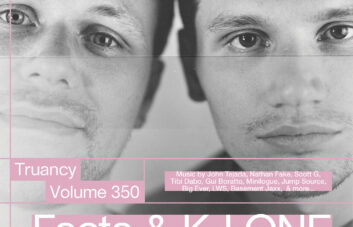Who is the real Earl Sweatshirt? The question is more pertinent than ever as he strikes out alone on I Don’t Like Shit, I Don’t Go Outside: An Album By Earl Sweatshirt. Produced almost entirely by himself under the alias randomblackdude, with a Left Brain beat and guest verse from the group’s quasi-member Vince Staples (the only Odd Future contributions), IDLS is the record Earl wants us to see as his manifesto proper. It’s the first album he puts out as a man after two often slapdash, occasionally brilliant solo outings with the boys.
This is a strange angle for Earl to come at us with, because IDLS presents us with someone struggling to reconcile the person he is, the person people thought he was, and the person he might become. Having always been the OFWGKTA member of the greatest lyrical promise, the weight of expectation that was exacerbated by the ‘Free Earl’ campaign, which drew Sweatshirt as a caricature of the already cartoonish, loquacious brat of his first self-titled mixtape. Whereas Doris often found itself caught between the poles of pandering to that perception and demonstrating growth, IDLS has Earl retreating (as the title might suggest) from a world that doesn’t get him. The trouble is that this sees him also toying with turning his back on the listener, himself and his craft.
The sound palette of IDLS is generally hostile, even alienating. Many of the beats simultaneously appear sparse and yet in danger of swamping themselves, with mucky ambiences skulking behind percussive sounds that could have been made by banging driftwood on an oil barrel. Drum patterns lurch drunkenly, with tracks like “AM // Radio” barely interested in holding a rhythm together at all. Occasionally a more sprightly production like “Huey” slips through, but these are brief excursions that seem designed more to laugh grimly at the idea that, while there was once a possibility of a lighter and more nimble record than IDLS (see the almost-banger “Mantra”), Earl’s intent on dragging the project down into the murkier corners of his psyche.
While Earl has obviously always found joy in the possibilities of language, much of IDLS sees him playing these purer joys off against the trauma of growing up in public and not living up to expectation, both other people’s and his own high standards. When he sulkily snarls ‘I don’t act hard, I’m a hard act to follow’ on “Grief”, the phrase comes off less as typical hip-hop braggadocio and more a man alienated by his own intelligence from the things and people he loves. This anger turned inward soon manifests in self-destruction, as Earl talks addiction and self-hatred, desperate to keep ‘my time and my mind intact’ but possibly not able to summon the energy for the fight. Ratking’s Wiki treads a similar line on AM // Radio, marrying literal abjection (‘spit out my food, hiccup and piss/urine burning, I can smell the liquor in this’) with acknowledgement of rap as a place of cathartic self-manifestation; ‘when I rap I blast off … keep my head screwed on and abuse these mics’.
However, Earl here needs someone else to do the work for him on this front. When he steps in later in the track, Earl is as couched as at any other point on the album, hitting blunts to stop himself from ‘yakking’ with his ‘mind in the trash next to where my fucking passion went’. While Earl’s troubles obviously run deep, the listlessness that pervades IDLS means that the whole thing feels rather formless. With the exception of the impressive “DNA”, his rapping throughout is languid, and while most of the time his lyrical deftness is enough to maintain interest the lack of hooks or drive mean that the album both feels longer than it is and yet ends abruptly a few seconds shy of the half- hour. Though this is fitting for a conflicted album from a conflicted man, one wonders if Earl might be confusing expression with venting, and if he has wilfully done away with a more nuanced offering in favour of this doomy, Doom-y piece. No doubt there is a great LP inside this man, but it might take a little while yet for him and us to find out who that man is. Free Earl.
Words by: Fred Mikardo-Greaves





The best part about the new Odd Future is listening to them struggle against what they made.